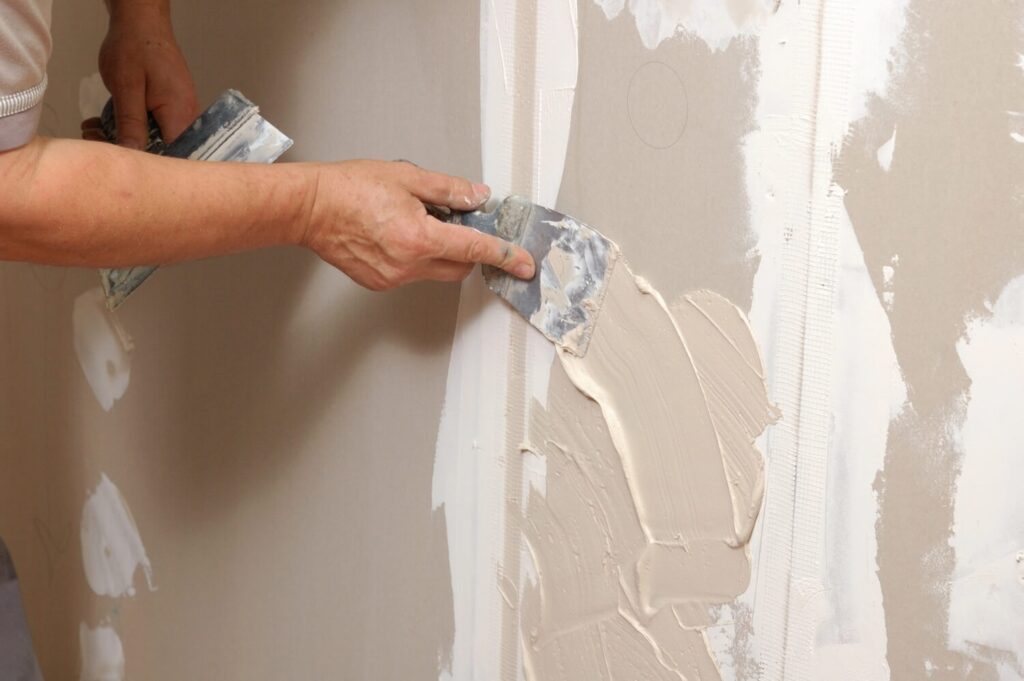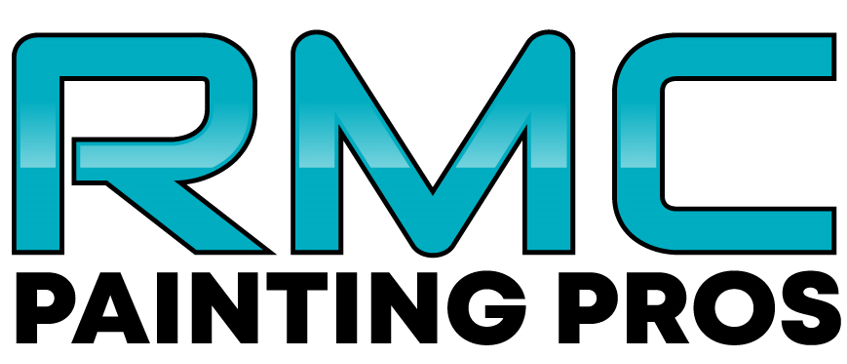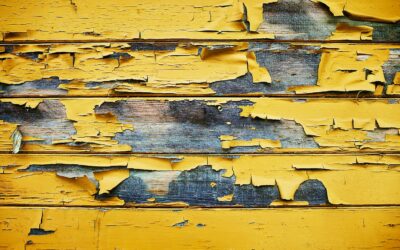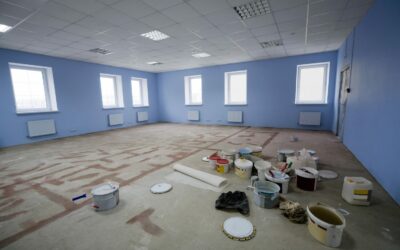
Achieving a flawless paint job often involves more than just selecting the right color and paint type. The condition of your walls plays a crucial role in determining the final result. Among the most common issues homeowners face is damaged drywall, which can significantly impact the quality of the paint finish.
In this comprehensive guide, we delve into the necessity of professional drywall repair before painting, exploring various types of drywall damage, the implications for painting, the benefits of professional repair, and the detailed process involved.
Understanding Drywall Damage
Drywall, also known as gypsum board or plasterboard, is a popular building material used to create smooth, even walls and ceilings. Despite its durability, drywall is susceptible to various types of damage over time. These issues include:
- Cracks: These can occur due to settling of the building, temperature fluctuations, or impact. Cracks may start small but can worsen over time, especially if left unaddressed.
- Holes: Whether caused by accidental damage, door handles, or nails, holes in drywall are common and need proper repair. Even small holes can be unsightly and affect the overall appearance of the wall.
- Water Damage: Leaks or flooding can lead to water stains, warping, and crumbling of drywall. Water-damaged drywall not only looks unsightly but also poses a risk of mold growth and structural damage if not addressed promptly.
- Dents and Dings: Furniture, appliances, or even careless handling can result in dents and dings on the surface. While these may seem minor, they can detract from the smoothness of the wall and affect the paint application.
The Impact on Paint
While it may be tempting to apply a fresh coat of paint over damaged drywall, doing so can exacerbate existing issues and lead to unsightly results. Here’s how drywall damage affects the painting process:
- Poor Aesthetic: Cracks, holes, and other imperfections can remain visible even after painting, detracting from the overall appearance of the room. Paint may not adhere properly to damaged areas, resulting in uneven color and texture.
- Uneven Surface: Damaged areas may not hold paint uniformly, resulting in uneven color and texture across the wall. This can be particularly noticeable in areas with significant damage or repairs.
- Shortened Lifespan: Paint applied over damaged drywall is more prone to chipping, peeling, and cracking, reducing its longevity and necessitating frequent touch-ups. Properly repaired drywall provides a stable surface for paint, ensuring a longer-lasting finish.
- Moisture Issues: Unrepaired water damage can lead to mold and mildew growth behind the walls, posing health risks and further compromising the integrity of the paint. Painting over water-damaged drywall without addressing the underlying issue can lead to mold re-growth and further damage.
Benefits of Professional Drywall Repair
While DIY enthusiasts may attempt to patch drywall damage themselves, there are compelling reasons to entrust this task to professional contractors:
Expertise and Experience
Professional drywall repair technicians possess the skills and knowledge to assess the extent of the damage accurately and implement appropriate repair techniques. Their experience enables them to achieve seamless results that blend seamlessly with the surrounding wall surface.
Quality Materials
Professionals use high-quality materials and tools specifically designed for drywall repair, ensuring durable and long-lasting results. From joint compound and drywall tape to sandpaper and primer, professionals have access to the best products for the job.
Time Efficiency
Repairing drywall can be time-consuming, especially for those with limited experience. Professional contractors can complete the job efficiently, minimizing disruption to your daily routine. They have the necessary tools and techniques to work quickly without sacrificing quality.
Comprehensive Solutions
Beyond patching visible damage, professionals can identify underlying issues such as water leaks or structural problems that may exacerbate drywall damage. Addressing these issues preemptively can prevent future problems and preserve the integrity of your walls. Professional contractors have the expertise to diagnose and address these issues effectively, ensuring that your walls are in optimal condition before painting.
The Process of Drywall Repair
Professional drywall repair typically follows a systematic process to ensure thorough and effective results:
- Assessment: The first step involves a comprehensive assessment of the damaged areas to determine the extent of the repairs needed. This may include identifying underlying issues such as water damage or structural instability. Professional contractors carefully inspect the walls to assess the type and severity of the damage, developing a tailored repair plan.
- Preparation: Before commencing repairs, the area surrounding the damaged drywall is protected to prevent further damage or mess. Furniture is moved, and floors are covered with drop cloths or plastic sheeting to contain dust and debris. Professional contractors take care to prepare the workspace properly, ensuring a clean and safe environment for the repair process.
- Repair: Depending on the nature and severity of the damage, various repair techniques may be employed. These can include patching holes with joint compound or drywall patches, filling cracks with spackle, or replacing severely damaged sections of drywall. Professional contractors have the skills and expertise to execute these repairs with precision, achieving seamless results that blend seamlessly with the surrounding wall surface.
- Sanding and Smoothing: Once the repairs are complete, the surface is sanded to ensure a smooth and even finish. This step is crucial for achieving seamless paint application. Professional contractors use sandpaper and sanding blocks to smooth out imperfections and create a uniform surface for painting.
- Priming: Before painting, the repaired areas are primed to promote adhesion and uniformity of the paint finish. Primer also helps to seal the repaired areas and prevent future moisture damage. Professional contractors apply the primer evenly to the repaired areas, ensuring optimal adhesion and coverage.
- Painting: Finally, the walls are painted using high-quality paint and professional techniques to achieve a flawless finish. Multiple coats may be applied as needed to ensure full coverage and color consistency. Professional contractors use brushes, rollers, or sprayers to apply the paint evenly, achieving a smooth and uniform finish.
More Considerations
While professional drywall repair may seem like an additional expense, it’s essential to view it as an investment in the long-term integrity and aesthetic appeal of your home. Here are some additional considerations to keep in mind:
- Property Value: A well-maintained interior can significantly enhance the value of your property. Potential buyers are more likely to be impressed by walls that are free from cracks, holes, and other imperfections. Professional drywall repair can make your home more attractive to prospective buyers and potentially increase its resale value.
- Health and Safety: Beyond aesthetics, damaged drywall can pose health and safety hazards. Crumbling drywall can release dust particles and allergens into the air, exacerbating respiratory issues such as asthma or allergies. Water damage can also create an environment conducive to mold and mildew growth, which can compromise indoor air quality and pose health risks to occupants. By addressing drywall damage promptly and professionally, you can safeguard the health and well-being of your family.
- Insurance Considerations: In cases where drywall damage is the result of a covered peril, such as a burst pipe or storm damage, professional repairs may be eligible for reimbursement through your homeowners’ insurance policy. However, it’s essential to document the damage thoroughly and consult with your insurance provider to determine coverage eligibility and requirements.
- Long-Term Savings: While the upfront cost of professional drywall repair may seem daunting, it can save you money in the long run by preventing more extensive damage that requires costly repairs down the line. Addressing minor issues promptly can help avoid structural problems that may necessitate extensive renovations or even compromise the safety of your home.
- DIY vs. Professional Repair: While minor drywall repairs can be tackled as DIY projects by those with the necessary skills and experience, more significant or complex damage is best left to the professionals. Attempting extensive repairs without the proper knowledge or tools can result in subpar results and may even worsen the damage.
- Enhanced Curb Appeal: The condition of your interior walls contributes significantly to the overall aesthetic appeal of your home. Whether you’re planning to sell or simply want to create a more inviting living space, investing in professional drywall repair can transform the look and feel of your home, making it more attractive to visitors and potential buyers alike.
Conclusion
In the quest for a perfect paint job, don’t overlook the importance of proper drywall repair. Addressing damaged areas before painting not only enhances the aesthetic appeal of your walls but also ensures the longevity and durability of the paint finish. By entrusting drywall repair to professional contractors, you can enjoy seamless results and peace of mind knowing that your walls are in optimal condition. So, before reaching for that paintbrush, consider whether your walls could benefit from professional drywall repair—it may just be the key to achieving the flawless finish you desire. With expertise, quality materials, and meticulous attention to detail, professional drywall repair ensures that your walls are ready for their close-up, providing the perfect canvas for your interior design vision.
Read Other Blog Posts
5 Signs It’s Time to Repaint Your Home: Don’t Ignore These Red Flags
Your home is more than just a...
Choosing Affordable Expert Paint Services That Don’t Compromise Quality
The quest for affordable yet...
Reasons Why Professional Painting Services are Vital for Commercial Properties
The façade of a commercial...
The Dos and Don’ts of Choosing Paint Colors for Your Home
Selecting paint colors for...
House Budgeting Brilliance: A Guide to Estimating Interior Painting Costs
Painting your home's interior...
The Painters Color Clock: How Often Should You Get Your Walls Painted?
The walls of our homes serve...






